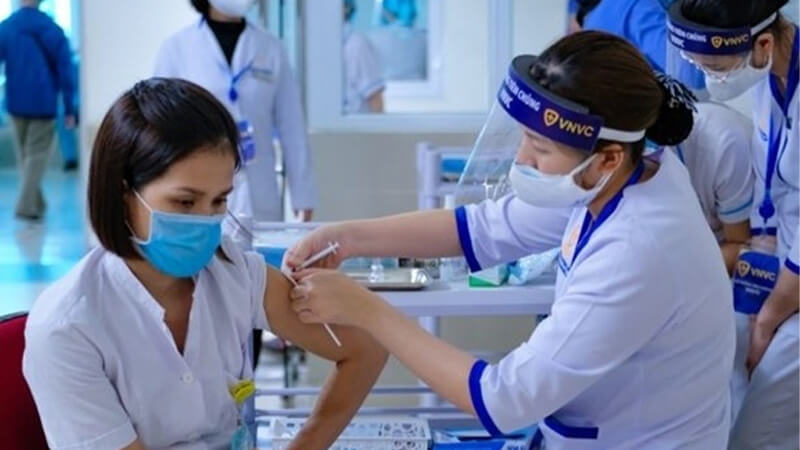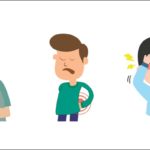The Ministry of Health is actively running a COVID-19 vaccine campaign, along with disseminating critical information about potential side effects. Citizens are strongly advised to be vigilant about these symptoms and seek immediate medical attention should they occur. Continue reading to learn more about this vital topic.
1 8 Post-Vaccination Symptoms: When to Seek Emergency Care
In Decision 3588, the Ministry of Health has outlined essential guidelines for organizing COVID-19 vaccination sessions. Notably, this decision includes a warning to individuals who experience any of the following eight symptoms after receiving the COVID-19 vaccine to immediately contact the mobile emergency team or proceed directly to the hospital:
- Tingling or numbness around the mouth or on the tongue
- Skin rash, hives, purple or red patches, bleeding, or bruising under the skin
- Itchy, tight, or swollen throat, with difficulty swallowing or speaking
- Neurological symptoms such as prolonged or intense headache, lethargy, drowsiness, confusion, coma, or seizures
- Cardiovascular issues, including chest pain, irregular heartbeat, or fainting spells
- Nausea, abdominal discomfort, or diarrhea
- Respiratory distress, such as shortness of breath, wheezing, or cyanosis
- General symptoms: Dizziness, lightheadedness, feeling faint, unusual fatigue, severe pain with no apparent cause, or persistent high fever above 39°C that doesn’t respond to antipyretics
 COVID-19 Citizen Vaccine Campaign
COVID-19 Citizen Vaccine Campaign
2 Pre-Vaccination Checklist: Be Prepared
Five Essential Steps to Take Before Your Vaccination Appointment
- Gather important documents, such as your ID card, vaccination records for other vaccines, recent medical reports, prescriptions, etc.
- Complete a health declaration form before arriving at the vaccination center, wear a mask, adhere to the 5K message, and ensure you are well-nourished and hydrated.
- Install the Bluezone app on your smartphone and provide the necessary information.
- Be transparent with medical staff about your personal health, including current health status, pre-existing conditions, recent treatments, medications, and treatment plans.
- Disclose any history of allergies or anaphylaxis to specific agents. If you’re receiving the second dose, inform the medical staff about any reactions you experienced after the first dose.
For further guidance:
Take Charge: Ask Questions
- Ask about the specific COVID-19 vaccine you will receive and the schedule for your next dose.
- Understand the potential post-vaccination reactions and how to manage them effectively.
- Obtain contact details for nearby medical facilities and emergency phone numbers.
Additionally, inform the medical staff if you have a history of COVID-19 infection or close contact with a confirmed case. Disclose any vaccines or medications received within the last 14 days. Pregnant or breastfeeding women should also provide this information to ensure their safety and well-being.
For more detailed information, refer to:
The COVID-19 vaccine is a critical tool in our fight against the pandemic and a necessary step towards socio-economic recovery. The nationwide vaccination campaign, running from July 2021 to April 2022, includes both public and private vaccination sites with the participation of various sectors. We wish you good health and encourage you to get vaccinated.
Source: Ministry of Health


































